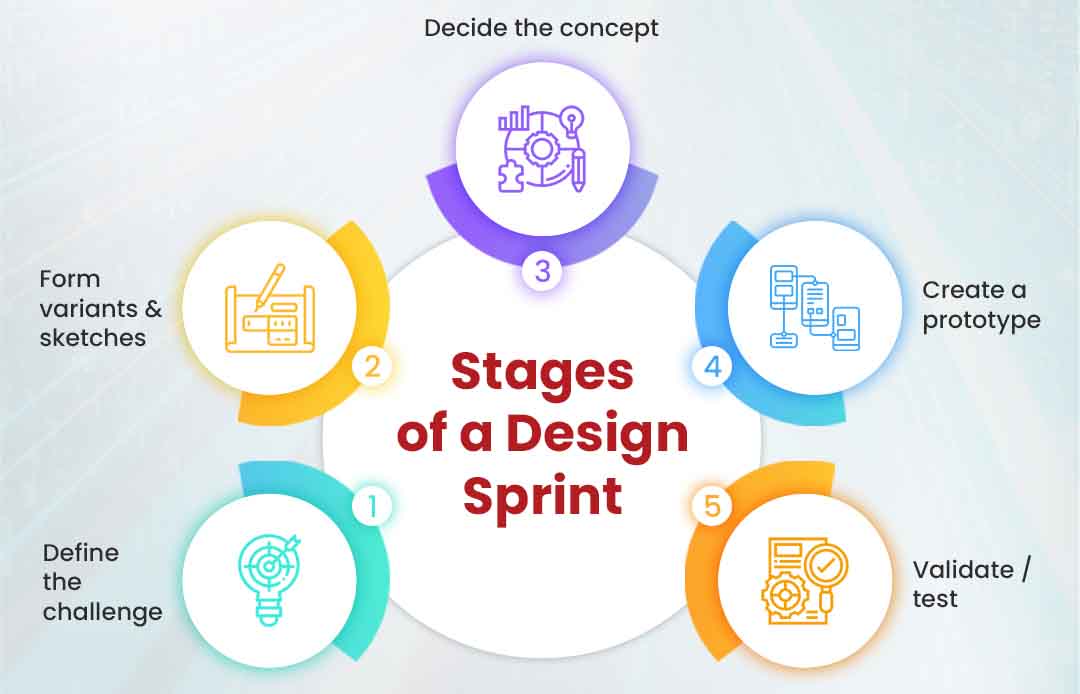Modules
Module 1: Understanding the Design Sprint Framework
- Overview of the 5-phase process: Understand, Ideate, Decide, Prototype, and Test.
- History and significance of design sprints in product development.
Module 2: Defining the Problem and Setting Goals
- Problem framing and goal setting techniques.
- Crafting challenge statements and success metrics.
Module 3: Ideation and Brainstorming
- Methods for generating innovative ideas.
- Sketching solutions and leveraging creativity tools.
Module 4: Deciding on Solutions
- Conducting dot voting and prioritization exercises.
- Developing storyboards for solution prototypes.
Module 5: Prototyping
- Building quick, low-fidelity prototypes to represent ideas.
- Tools and techniques for creating user-centric prototypes.
Module 6: User Testing and Feedback
- Planning and conducting user tests.
- Analyzing feedback and iterating on solutions.
Module 7: Implementing the Design Sprint Outcomes
- Transitioning prototypes into development.
- Maintaining sprint momentum in the organization.
Requirements
- Enthusiasm to learn innovative problem-solving frameworks.
- Basic understanding of design thinking or product development.
- A laptop or tablet for participating in online tools and activities.
- Access to brainstorming tools (e.g., Miro, Figma, or physical whiteboards).
- Time commitment for team collaboration during the sprint.
Target Audience
- Entrepreneurs and startup founders looking to rapidly prototype ideas.
- Product managers aiming to refine development workflows.
- UX/UI designers interested in collaborative problem-solving.
- Teams working in agile environments or innovation hubs.
- Students or professionals seeking to enhance creative and strategic thinking skills.
- Facilitators who want to implement design sprints in their organizations.
Key Features
- Comprehensive breakdown of the 5-phase Design Sprint process.
- Hands-on activities and real-world case studies.
- Access to templates and tools for conducting design sprints.
- Techniques for effective collaboration in team settings.
- Guidance on creating prototypes without extensive technical knowledge.
- Tips for conducting impactful user interviews and usability tests.
- Insights into adapting sprints for remote and hybrid teams.
- Certificate of completion and portfolio-ready project outcomes.
FAQs
- What is a Design Sprint?
A design sprint is a structured five-day process for solving big challenges and testing ideas rapidly through prototyping and user feedback. - Do I need prior experience in design or product development?
No prior experience is required. The course is structured to cater to beginners and experienced professionals alike. - Will I work on real-world projects during the course?
Yes, participants will work on practical projects and case studies to apply the concepts. - How long does the course take to complete?
The course typically spans 5-7 sessions, each lasting 2-3 hours.
For more information, Please email us connect@bis-dev.com
